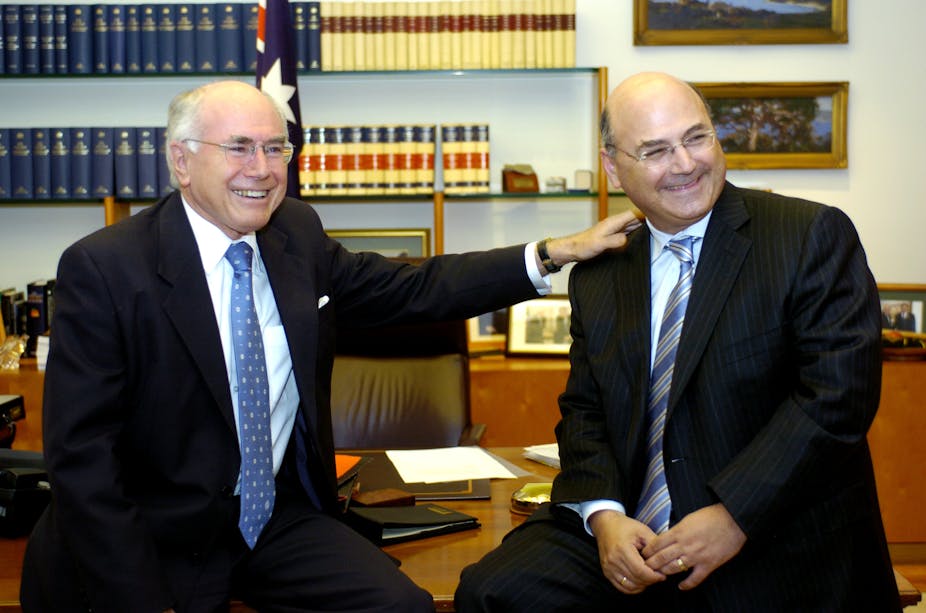Arthur Sinodinos has long been mooted as a potential successor to retiring former Howard minister, Senator Helen Coonan.
Now that Sinodinos - long serving chief of staff to former Primer Minister John Howard - has yielded to pressure from party colleagues to nominate for the casual vacancy created by Coonan’s retirement, he will significantly enhance the Liberal brand in his home state of New South Wales.
It is difficult to think of someone better qualified to sit in the nation’s Upper House. Harder still to recall an individual - so long at the centre of bitter and intense political contest, who is held in such high regard on all sides of Australian politics.
That he has accepted the Senate nomination may surprise some. Already he has eschewed an opportunity to run for a safe seat in the House of Representatives.
But if this son of Greek immigrant parents, who grew up in working class Newcastle, where he earned a first class honours degree from the local university, fulfills the promise so many see in him, he will be welcomed with open arms.
Having someone of Sinodinos’ calibre will lend much-needed gravitas and policy grunt to Tony Abbott’s front-bench – particularly in its area of most obvious weakness: economic policy.
By dint of educational background, policy and professional experience, Sinodinos confounds the stereotype of political staffer on the fast track to pre-selection.
An economist with 13 years experience in a variety of senior roles in Commonwealth Treasury, Sinodinos spent five years as Economic Adviser to John Howard – first in Opposition (1987-1989; 1995-96) and later in government (1996-97).
As Chief of Staff to the Prime Minister for eight years from September 1997 to December 2006, Sinodinos helped Howard attain what had eluded him for much of his first term and again in his last – an efficient and effective advisory and support system.
During his tenure as the government’s most senior and influential ministerial staffer, notable improvements were achieved in policy coordination and political management – in the leader’s office, across the ministry as well as in the government’s relationships with the public service, the parliament and stakeholders.
Sinodinos is regarded as one of the most professional and effective individuals to have held the role of prime minister’s Chief of Staff. A consummate professional, he is respected across the political divide for his approach, attitude and political nous.
Since leaving politics, Sinodinos has worked in the private sector – first at Goldman Sachs JB Were and more recently with the National Australia Bank.
But he has maintained his links with the public sector, serving on the Board of the Australia and New Zealand School of Government (ANZSOG) since late 2008.
He has shared the benefit of his considerable experience and insight by contributing to activities across ANZSOG’s research, teaching, executive education and applied learning portfolios.
His recent election as President of the Liberal Party in NSW suggests no lack of political ambition.
But he better than anyone knows that, unlike the experience of Opposition that steeled the Coalition to embrace the discipline and cohesion that defined the Howard government, the “hard yards” of policy review and redevelopment have not yet been done; the bitter lessons of the 2007 defeat have not been learned; many late-comers whose only experience was being in government have developed neither the hunger, nor, it has to be said, the skills, that years in the wilderness teach.
Still, the prospect of a return to office in 2013 might have some attractions for Sinodinos, given his twin passions of economic management and economic reform, will be front and centre.
Australia’s Parliament will be better for his taking a seat there.

